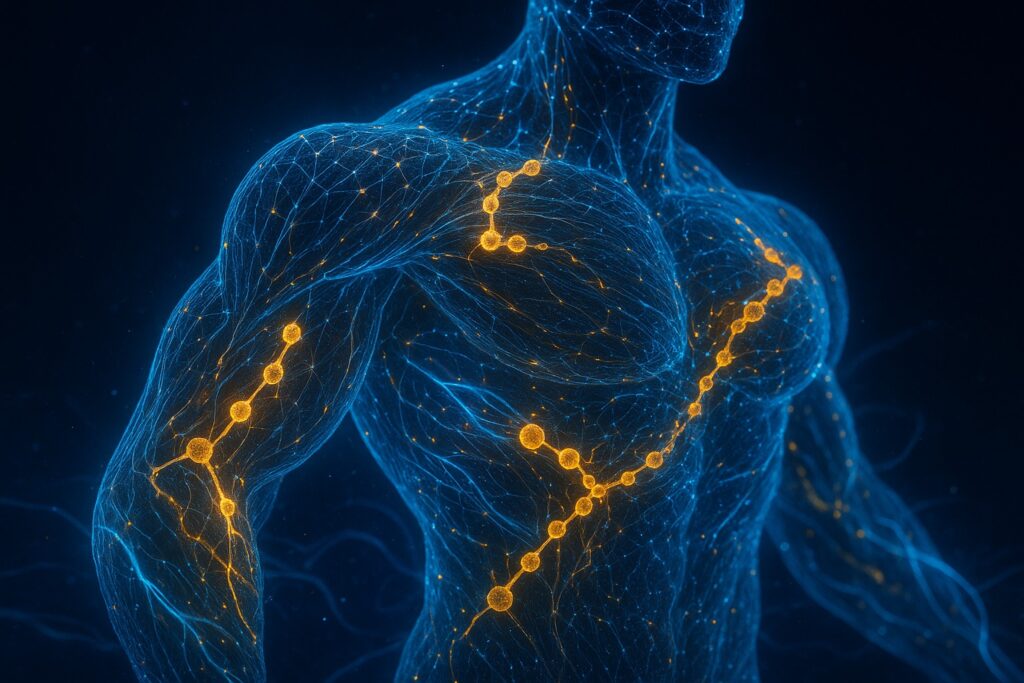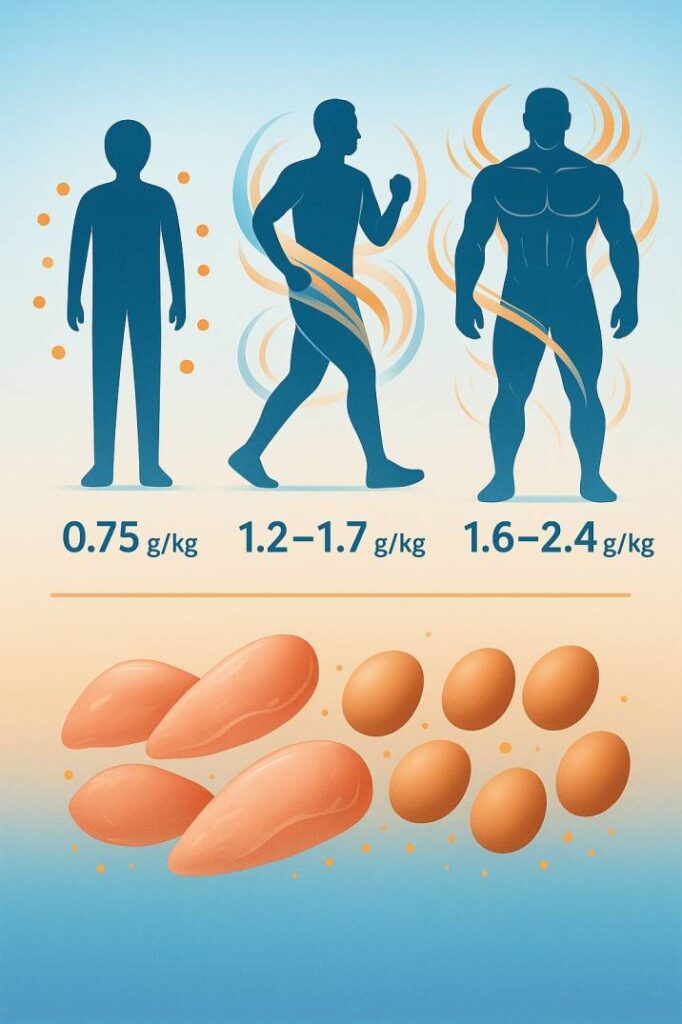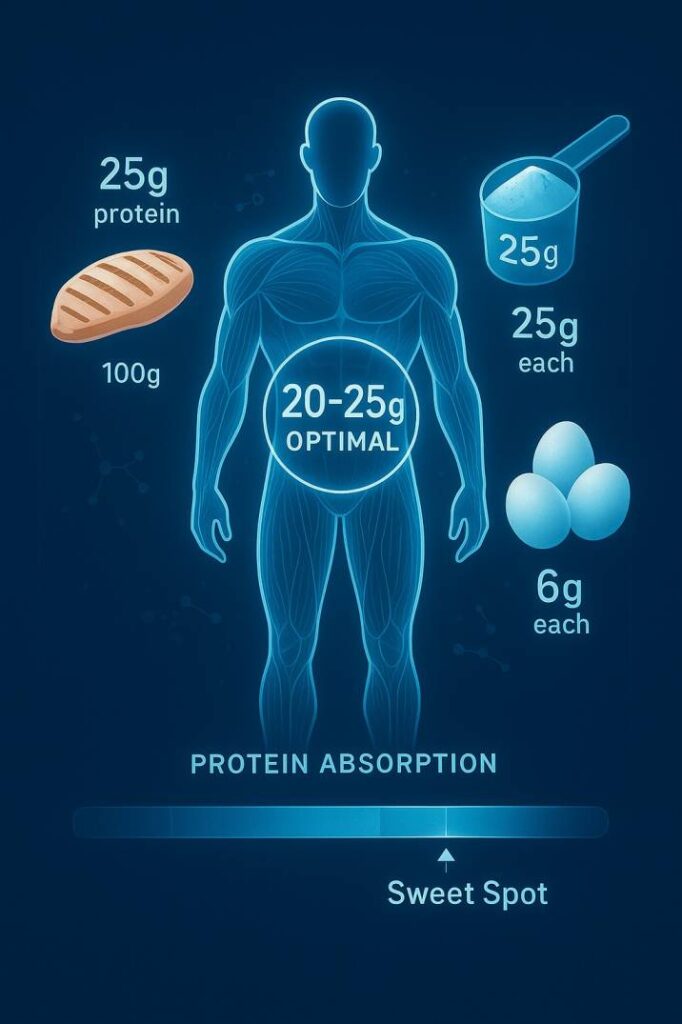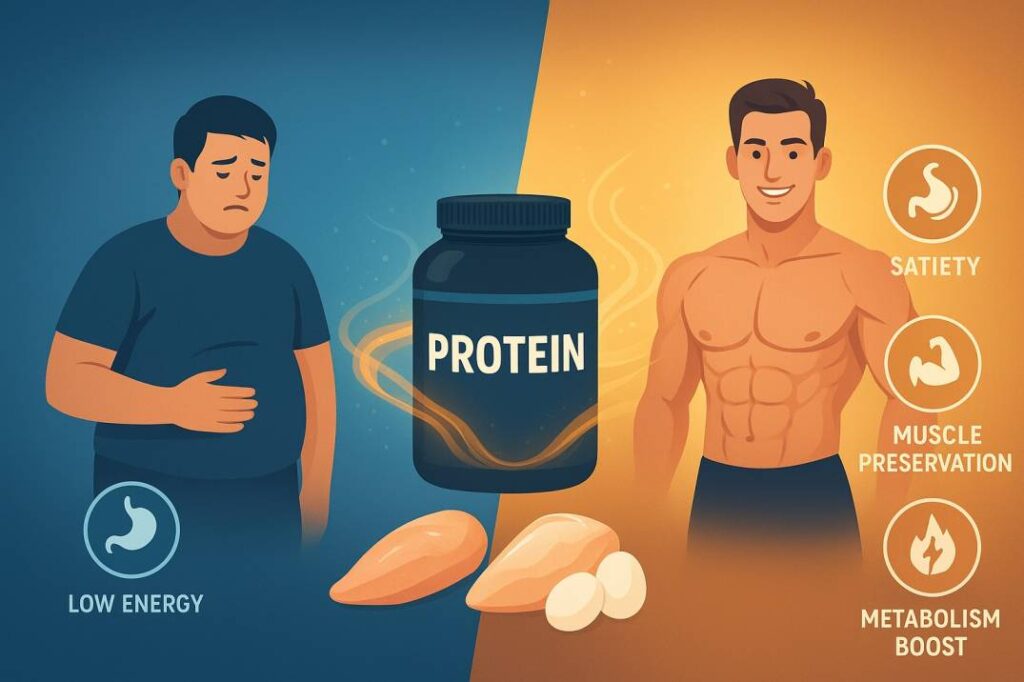The Protein Supplement Boom
Walk into any gym today and you’ll see people sipping protein shakes like they’re drinking water. The supplement industry has convinced us that these powders and bars are essential for getting fit. But here’s the million-dollar question: Do you really need them?
Why Protein Matters (The Basics)

Think of protein as your body’s building blocks. Every single cell contains it, and your body uses protein to:
- Build and repair muscles (especially after workouts)
- Create hormones and enzymes that keep you functioning
- Provide energy when needed
When you lift weights, you create tiny tears in your muscle fibers. Protein helps repair these tears, making your muscles bigger and stronger through a process called “muscle protein synthesis.”
How Much Protein Do You Actually Need?

Here’s where it gets interesting. Your protein needs depend on your goals:
For Average People (Not Very Active)
- Basic requirement: 0.75g of protein per kilo of body weight per day, which works out as 56g (2oz) a day for a 75kg (11st 11lb) man and 45g (1½ oz) a day for a 60kg (9st 6lb) woman
For Active People and Muscle Building
- Recommended range: 1.2 to 1.7 grams of protein per kilogram of body weight per day
- For serious muscle building: 1.6–2.4 g/kg/day
Real-world example: If you weigh 70kg (154 lbs) and want to build muscle, you’d need about 98-140 grams of protein daily. That’s roughly equivalent to:
- 4-5 chicken breasts, OR
- 6-8 eggs plus other protein sources throughout the day
The “Magic Window” Myth
You’ve probably heard you need to drink a protein shake within 30 minutes after working out. The research is more nuanced than that.
There is robust evidence which shows that consuming protein pre- and/or post-workout induces a significant rise in muscle protein synthesis, but timing isn’t as critical as total daily intake over the long term.
How Much Protein Per Meal?

Scientists have found that muscle protein synthesis is maximized in young adults with an intake of ~ 20–25 g of a high-quality protein. This is about:
- 100g of chicken breast
- 1 scoop of most protein powders
- 3-4 eggs
Anything beyond this amount gets used for energy or eliminated from your body – at least for whey protein. However, whole food proteins may work differently.
The “Muscle Full Effect” Explained Simply
Think of your muscles like a sponge. Once they’re saturated with protein (around 20-25g), they can’t absorb much more for the next 90-120 minutes. This is called the “muscle full effect.”
But here’s the catch: This research was mainly done with whey protein, which is absorbed very quickly. Other proteins like those found in milk or whole foods are absorbed more slowly and may not have the same limitations.
Can Protein Supplements Help with Weight Loss?
Yes, but not in the way you might think. Protein supplements can help with weight loss because they:

- Increase satiety: Make you feel fuller longer
- Preserve muscle mass: During calorie restriction
- Boost metabolism: Muscle tissue burns more calories at rest
However, the effects are probably the largest for people who aren’t getting enough protein in their diet, and studies show that high-protein diets work equally well whether the protein comes from supplements or whole foods.
The Bottom Line: Do You Need Supplements?
Short answer: Probably not, if you eat a balanced diet.
Longer answer: Protein supplementation may enhance muscle mass and performance when the training stimulus is adequate (e.g., frequency, volume, duration), and dietary intake is consistent with recommendations for physically active individuals
When Supplements Might Be Helpful
Protein supplements can be useful if you:
- Struggle to eat enough protein from whole foods
- Have a very busy lifestyle and need convenience
- Are vegetarian/vegan and find it hard to get complete proteins
- Are older and need extra protein to maintain muscle mass
Smart Protein Strategies (With or Without Supplements)
- Focus on total daily intake rather than perfect timing
- Aim for 20-30g of protein per meal spread throughout the day
- Choose whole food sources first: chicken, fish, eggs, beans, dairy
- Use supplements as a backup plan, not your primary source
The Realistic Take
Here’s what the research really shows: If you’re eating a reasonably balanced diet with adequate protein from whole foods, supplements won’t make a dramatic difference. They’re convenient, but they’re not magic.
Your money might be better spent on:
- Quality whole foods
- A good gym membership
- Consistent training program
- Adequate sleep and recovery
Key Takeaways
✅ Protein is essential for muscle building and recovery
✅ Active people need more protein than sedentary individuals (1.2-2.4g per kg body weight)
✅ 20-25g per meal is optimal for muscle protein synthesis
✅ Total daily intake matters more than perfect timing
✅ Whole foods are preferred over supplements when possible
✅ Supplements are convenient but not necessary for most people
Remember: The best protein strategy is the one you can stick to consistently. Whether that comes from chicken, beans, or a shake doesn’t matter as much as hitting your daily targets and training regularly.
This article is based on current scientific research and expert recommendations. Individual needs may vary, and it’s always wise to consult with a healthcare provider or registered dietitian for personalized advice.


